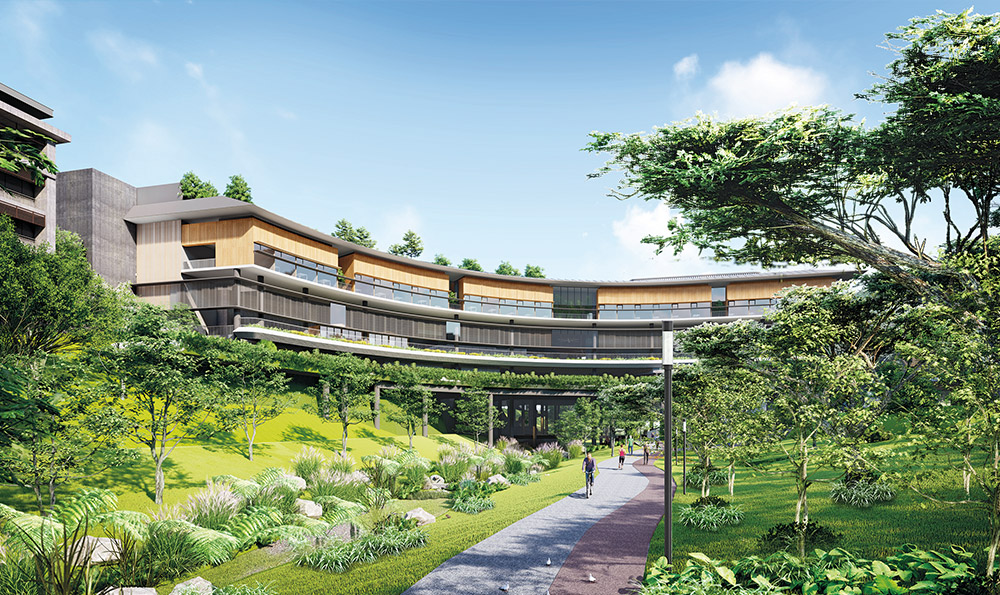Joining the dots to map out tomorrow
January 8, 2021
Finding solutions to the defining challenges of our time seems nigh impossible. But with an interdisciplinary mindset, we are halfway there.
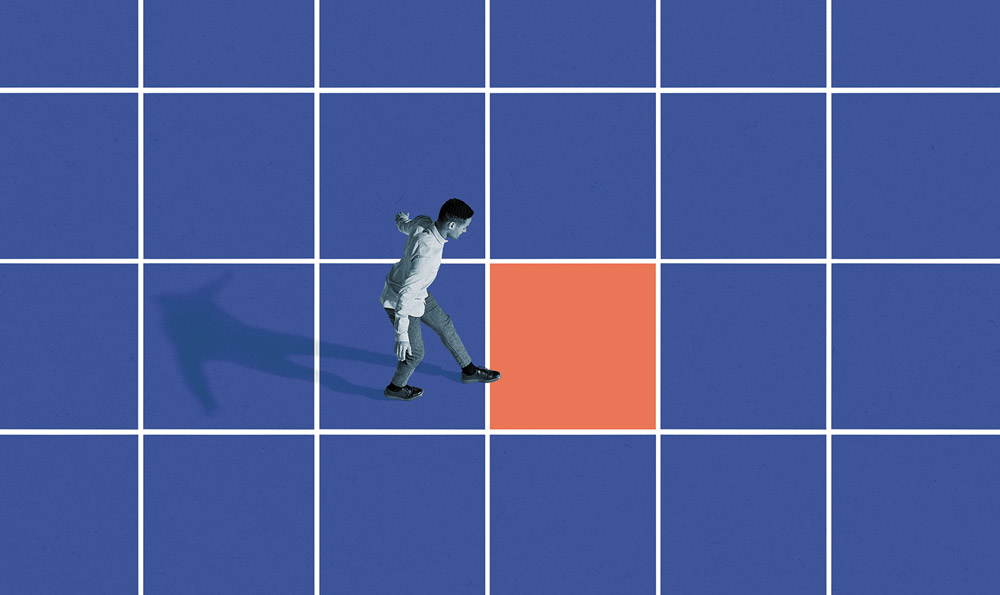
COVID-19 is not a purely medical or public health issue. It is also an economic one, as global GDP has fallen and countries have slipped into recession. It also has political repercussions, as simple acts like mask-wearing have become inexorably linked to one’s party affiliation in countries such as the United States. And it is a deep-seated social issue, as marginalised groups — who lack access to quality healthcare and tend to work in precarious, low-wage jobs — have borne the brunt of the fallout, exacerbating inequalities across the fault lines of race, gender, and class.
The pandemic may be the most urgent problem facing the world right now, but it is not the only one. Climate change, ageing populations, concerns about artificial intelligence (AI) — these are all big, complex, real-world problems of the 21st century, and each involves overlapping considerations. Addressing them in a satisfactory way requires experts from different fields to work together. Today’s workforce is therefore expected to embrace an interdisciplinary approach. This is also reflected in the higher education landscape, where a trend towards ‘interdisciplinarity’ is occurring. This is a trend that NUS in particular is paying close attention to, and the University is already in the process of rolling out plans to support it.
Our young adults will graduate into a world of ‘wicked problems’ — problems that are ill-defined, mutate all the time, defy single-discipline solutions, and even challenge established bodies of knowledge.
Professor Tan Eng Chye, NUS President
BREAKING DOWN SILOS
Universities have traditionally been modelled around specialisation. Faculties and departments typically focused on specific subject domains. Students would select which major to pursue, and could go even deeper into their chosen area of study through a postgraduate education. It used to be that being schooled in one discipline — be it as a doctor, lawyer, accountant, scientist, or psychologist — could set us up for life.
However, things cannot be bracketed so neatly anymore. As NUS President Professor Tan Eng Chye (Science ’85) wrote in an opinion piece published in The Straits Times on 10 September 2020, “Our young adults will graduate into a world of ‘wicked problems’ – problems that are ill-defined, mutate all the time, defy single-discipline solutions, and even challenge established bodies of knowledge.” For students to make sense of the chaos and have a decent shot at solving it, he argued, universities need to “broaden the intellectual foundations of our students’ learning” by “integrating knowledge, skills, and insights from different disciplines”.
BEST OF BOTH WORLDS
 Come August, NUS will introduce 10 new Cross-disciplinary Degree Programmes (CDPs) to give students the flexibility to pursue programmes across complementary disciplines — in the same amount of time as a four-year Bachelor with Honours degree. Unlike a traditional double degree or double major, where students acquire in-depth, specialist knowledge in two distinct disciplines, the CDPs are designed to integrate complementary disciplines and leverage their synergies. Some possible pairings include Economics and Data Science; Computing and Project Management; as well as Engineering and Business.
Come August, NUS will introduce 10 new Cross-disciplinary Degree Programmes (CDPs) to give students the flexibility to pursue programmes across complementary disciplines — in the same amount of time as a four-year Bachelor with Honours degree. Unlike a traditional double degree or double major, where students acquire in-depth, specialist knowledge in two distinct disciplines, the CDPs are designed to integrate complementary disciplines and leverage their synergies. Some possible pairings include Economics and Data Science; Computing and Project Management; as well as Engineering and Business.
‘Integrating’ is the keyword here, and it is, according to the literature, what distinguishes a multidisciplinary curriculum from an interdisciplinary one. The former exposes students to two or more academic disciplines that each have bearing on a given topic, without explicitly integrating them. Think of a course where professors from different faculties take turns giving lectures, but do not bridge their respective domains of expertise; instead, students are left to draw the connections themselves. Interdisciplinarity, on the other hand, combines two or more academic disciplines to generate synergies and synthesise new knowledge, in order to tackle society’s problems now and in the future.
In recent years, NUS has been incrementally inching towards interdisciplinary learning. All NUS students, regardless of their specialisation, are required to complete a set of five General Education modules aimed at developing generalist skills and providing a holistic education. At the residential colleges, students from different disciplines live, play, and study together under specially-designed academic programmes such as the University Scholars Programme. An expanding slate of double majors, major-minor combinations, and double degree programmes gives students the flexibility to study more than one area of interest in greater depth.
The University laid down its biggest marker yet for this shift on 8 December 2020 with the official launch of the new College of Humanities and Sciences (CHS), which brings together the Faculty of Arts and Social Sciences (FASS) and the Faculty of Science (FoS), two of the largest and most established faculties in Singapore.
WHEN SCIENCE MEETS THE HUMANITIES
Starting from Academic Year 2021/2022, incoming freshmen to FASS and FoS will be admitted first to CHS and study a distinctive Common Curriculum that integrates the humanities and the sciences. It will impart intellectual breadth in the initial semesters, and includes five new integrated modules covering Asian Studies, Integrated Social Sciences, Integrated Humanities, and two modules on Scientific Inquiry. Modules on Design Thinking, AI, and Community and Engagement will also equip students for the interconnected digital economy. With this strong and broad-based foundation, they can then specialise in their chosen field or build expertise in multiple disciplines.
Students admitted to the College will belong to both FASS and FoS. Except for a few selected majors, they will be able to pursue any major, second major, major-minor, and specialisation pathway offered by both Faculties — culminating in a four-year Honours degree in Arts, Social Sciences, or Science. The curricular structure thus balances depth with breadth, and allows for greater flexibility and cross-pollination of disciplines across the humanities, social sciences, science, and mathematics. Problem-based pedagogies will also be widely adopted, with teaching focused on solving problems rather than the pure impartation of content. This will be reinforced with experiential learning via internships and project work.

Employers are leaning towards graduates with an integrated educational background, as they can draw on and connect knowledge from diverse disciplines for application.
Professor Sun Yeneng, Dean, Faculty of Science
FoS Dean Professor Sun Yeneng notes that CHS goes much further in scaling up interdisciplinary courses which NUS has rolled out to date. “It opens up a new world of possibilities and pathways, giving our students unprecedented flexibility to chart their own learning journeys based on their interests, aptitudes, and career aspirations. Employers are leaning towards graduates with an integrated educational background, as they can draw on and connect knowledge from diverse disciplines for application,” he says.
In addition to opening up more job options, interdisciplinary learning will also help students make sense of, and proactively address, future disruptions that are bound to occur in the Fourth Industrial Revolution. Adds Prof Sun, “The new CHS is not just timely, but crucial. It provides the critical foundation that enables students to synthesise ideas and perspectives from different disciplines. It is this interdisciplinarity that will better prepare our students to become problem-solvers in an uncertain world beyond the pandemic.”
ALL IN FAVOUR!
During preliminary consultations for the new CHS, the University invited FASS and FoS alumni to take part in several President’s Dialogue sessions with NUS President Prof Tan and faculty members. NUS alumni, including the two featured here, responded favourably to the news.
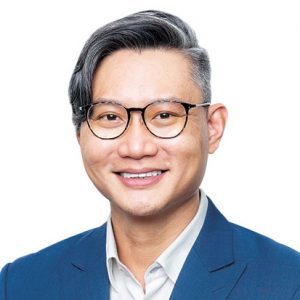 “I think the new CHS is a great strategic decision. With the future landscape of tech disruption, geopolitical challenges, and an emerging Southeast Asia, we need graduates who are grounded in the humanities and sciences, as well as adaptable and culturally savvy to navigate the uncertainties ahead. Interdisciplinary learning exposes graduates to think across disciplines, and prepares them for new jobs and industries that currently don’t exist.”
“I think the new CHS is a great strategic decision. With the future landscape of tech disruption, geopolitical challenges, and an emerging Southeast Asia, we need graduates who are grounded in the humanities and sciences, as well as adaptable and culturally savvy to navigate the uncertainties ahead. Interdisciplinary learning exposes graduates to think across disciplines, and prepares them for new jobs and industries that currently don’t exist.”
Mr Adrian Tan (Arts and Social Sciences ’04), Innovation Advisory Consultant for a leading cloud service provider
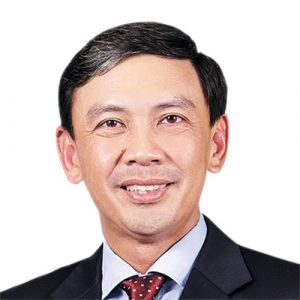 “It's a good idea to bring the two Faculties together. Graduates from CHS will gain a broader perspective and, in my view, this will make them better scientists. At our National Centre for Food Science, the scientists we want are those with skillsets beyond the traditional Science degree. It is important that they are not only skilled in lab work, but can also understand how people make decisions about the food they buy and eat.”
“It's a good idea to bring the two Faculties together. Graduates from CHS will gain a broader perspective and, in my view, this will make them better scientists. At our National Centre for Food Science, the scientists we want are those with skillsets beyond the traditional Science degree. It is important that they are not only skilled in lab work, but can also understand how people make decisions about the food they buy and eat.”
Mr Lim Kok Thai (Sciences ’95), Chief Executive Officer, Singapore Food Agency
A LIFELONG PURSUIT
A similar transformation is happening in the field of lifelong learning, which at NUS is spearheaded by the School of Continuing and Lifelong Education (SCALE). In today’s fast-changing world, knowledge and skills are quickly becoming obsolete, and new occupations and roles are emerging every day. Specialisation, while still important, is no longer sufficient. “Many problems are now multifaceted, so people must be agile enough to manage the interface between disciplines,” says Professor Susanna Leong (Law ’89), NUS’ Vice Provost (Masters’ Programmes & Lifelong Education) and Dean of SCALE.
For example, SCALE’s MSc in Industry 4.0 programme cuts across various disciplines including the Institute of Systems Science, the Faculties of Computing, Engineering, Science, and NUS Business School. On the non-credit-bearing side, SCALE offers a large catalogue of short courses for adult learners to reskill themselves and stay relevant in the modern workplace, covering areas such as change management, data analytics, and marketing. This same mix of broad-based knowledge and technical skills is provided by the NUS Lifelong Learners programme, which allows NUS graduates to take Continuing Education and Training courses for up to 20 years after their graduation.

COVID-19 has disrupted lives and careers. Hopefully, people will use the current situation as an opportunity to reframe their mindsets about lifelong learning. It is better to have multiple legs to stand on instead of just one.
Professor Susanna Leong, NUS’ Vice Provost (Masters’ Programmes & Lifelong Education) and Dean of SCALE
SCALE is also supporting fresh NUS graduates who are facing a weak job market amid the pandemic, through the University’s Resilience & Growth (R&G) Initiative launched in April 2020. Besides full-time jobs within NUS and paid traineeships, the R&G Initiative offers a specially-curated suite of lifelong learning courses, ranging from hard digital skills like AI and machine learning to key soft skills such as communication and storytelling. As for mid-career jobseekers affected by the economic downturn, SCALE’s NUS SGUnited Skills programme offers full-time traineeships in selected industries such as advanced manufacturing and fintech. Participants receive training in both broad interpersonal skills and the deep skills required for the particular industry, as well as in the increasingly important pillar of data and digital skills, to improve their employability. “COVID-19 has disrupted lives and careers. Hopefully, people will use the current situation as an opportunity to reframe their mindsets about lifelong learning,” Prof Leong muses. “Lifelong learning should not be a reactionary response to a crisis, but rather a way of helping us take a proactive role in our personal development and remain industry-relevant so that we can pivot even before the crisis happens. It is better to have multiple legs to stand on instead of just one.”
TO SHAPE A BETTER FUTURE
During preliminary consultations for the new CHS, the University invited FASS and FoS alumni to take part in several President’s Dialogue sessions with NUS President Prof Tan and faculty members. NUS alumni, including the two featured here, responded favourably to the news.
 As part of the R&G Initiative, and to also mark the University’s 115th anniversary, NUS launched the R&G Innovation Challenge in 2020. Graduates from the Classes of 2020, 2019, and 2018 were invited to form interdisciplinary teams to develop holistic solutions for a better post-COVID future.
As part of the R&G Initiative, and to also mark the University’s 115th anniversary, NUS launched the R&G Innovation Challenge in 2020. Graduates from the Classes of 2020, 2019, and 2018 were invited to form interdisciplinary teams to develop holistic solutions for a better post-COVID future.
NUS will fund 115 projects across 3 categories: Make Our People Better, Make Our Society Better, Make the World Better. Each selected project will receive a grant of up to $50,000 for 6 months.

TECHNOLOGY IN THE CLASSROOM
Technology and digital literacy feature heavily in the new CHS curriculum and in SCALE’s offerings — and indeed, throughout the rest of the University as well. At the Faculty of Law, for instance, technology-led upheavals in the practice of law are driving legal education reform. Not only do law students have to be well-versed in laws surrounding the regulation of new technologies such as AI and blockchain, they must also understand how technology is transforming the role of lawyers themselves. The automation of routine tasks such as document review and discovery, and the use of predictive analytics to find out how particular judges decide on cases, are just two examples. “Lawyers of the future will still need the outstanding critical and analytical skills that we have always cultivated at the Faculty of Law, as well as the ability to communicate effectively and operate in teams. But those teams will, increasingly, rely on AI systems as well as men and women,” says the Faculty of Law Dean Professor Simon Chesterman. “That doesn’t mean all law students need to be expert coders or get a second degree in Computer Science. But it does mean that they need to be comfortable working with computers, and be able to take advantage of the efficiencies and opportunities that they offer.”
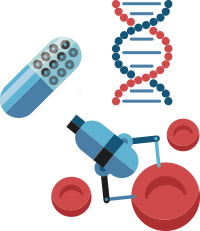
The idea is that [medical students] will still be doctors, but can work better with experts from other fields. Medicine is not just about knowing how to manage diseases.
Professor Chong Yap Seng, Dean, Yong Loo Lin School of Medicine
At the Faculty of Law, students undergo a one-day law and technology boot camp, and are encouraged to compete in legal technology competitions and hackathons. Speakers from the profession are regularly invited to brief students on the changing landscape. Students and faculty alike have presented at TechLaw.Fest, a local industry event. A new Centre for Technology, Robotics, AI and the Law was recently established. And the Faculty is currently reviewing its curriculum to increase understanding of computational thinking.
The field of medicine is also changing in profound ways because of technology. From entering notes in electronic medical records software to the rise of minimally-invasive robotic surgery and telemedicine, these are all part of the modern medical curriculum. Professor Chong Yap Seng (Medicine ’88), Dean of the Yong Loo Lin School of Medicine, adds that the School also recruits non-medical faculty such as bioengineers and ethicists, and is trying to bring other disciplines like systems thinking, health economics, and behavioural sciences into the curriculum. This will give medical students a fuller picture of the health system they are working in, and how to improve service delivery for better patient outcomes. “One new thing we’ve done is to allow a small number of medical students to take a gap year, during which time they will pursue a Master of Science course. They get to work with scientists — not necessarily in lab work, but also analysing data and conducting research,” says Prof Chong. Other Master’s courses in public health, data sciences, and biotechnology will be rolled out in due time. “The idea is that they will still be doctors, but can work better with experts from other fields. Medicine is not just about knowing how to manage diseases,” he stresses.
Even the way the Yong Loo Lin School of Medicine conducts classes has changed in the wake of COVID-19. To ensure medical students could continue to hone their clinical skills while staying safe, educators piloted the use of an innovative virtual reality gaming system and an AI-enabled Virtual Integrated Patient platform to simulate an actual clinical setting. In fact, all Faculties and Schools turned to technology-enhanced learning tools as in-person classes came to an abrupt halt last year, so as not to disrupt students’ learning.
To be sure, tech-enhanced learning has existed at NUS for much of the last decade, albeit in rather piecemeal fashion. Before COVID-19 hit, some modules and programmes were already experimenting with blended learning (a mix of online and in-person sessions) and ‘flipped classrooms’ to help students learn at their own pace. The pandemic, however, has accelerated their adoption. “Major trends include the use of videoconferencing, smartphones, and custom communication functions or applications for delivering improved learning and teaching experiences,” says Professor Mohan Kankanhalli, Dean of the School of Computing. For example, it is now commonplace for students to participate in live polls via their mobile devices during lectures, which makes classes more interactive and engaging. Several faculty members have also developed platforms for more effective one-to-one and many-to-one communication with students, as well as improved peer-to-peer feedback for student team projects.
Soon, the School of Computing plans to launch a new EdTech Centre that will integrate all relevant educational technology solutions onto the same platform. “With better user interface, professors will then find it easier to teach online,” says Prof Kankanhalli. “We firmly believe that the face-to-face campus learning experience is irreplaceable. However, if done right, technology can be an excellent complement that would significantly augment the on-campus experience and meaningfully sustain engagement beyond campus.”
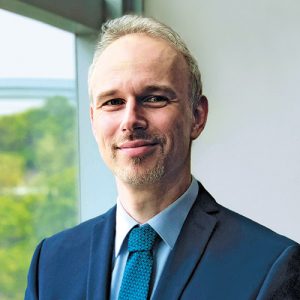
AI is used within social settings, so many of the tasks technology can be used for do not only pose technological challenges, but also social and humanitarian ones.
Professor David De Cremer, Founder and Director, Centre on AI Technology for Humankind
USE YOUR IMAGINATION
Apart from the upcoming EdTech Centre, the School of Computing is also gearing up to launch the brand-new COM3 @ Imagination Ridge. Due to be completed in late 2021, this futuristic, purpose-built building is designed to inspire students, researchers, and faculty to develop innovative, next-generation solutions for societal grand challenges. It will house flexible, well-equipped labs; easily-reconfigurable collaboration spaces; a social deck; and a multipurpose hall, among other facilities. Located over Lover’s Park valley, it will also connect academia, research, and industry, by providing a physical bridge between COM1, COM2, and the Smart Nation Cluster in the Innovation 4.0 building.
RESEARCH ON ALL FRONTS
Specifically, CARE is interviewing older adults to find out the reasons behind them delaying elective surgeries and not having their chronic conditions cared for during this time. “We know that 42 per cent of older adults did not go for normal appointments during and after the Circuit Breaker,” says Associate Professor Angelique Chan, Executive Director of CARE. “Through this study, we hope to put in place ways for older adults to feel safer about accessing the healthcare system if another pandemic happens.”
Assoc Prof Chan, who was trained in sociology, discloses that interdisciplinary research is central to CARE’s work. “Interdisciplinarity is needed because ageing encompasses physical, social, and cognitive or mental health issues. For example, dementia is clinically defined as cognitive decline in older persons. However, there are also issues around caregiving and caregiver burden; how different groups in society perceive dementia differently, which interferes with their care; and policymaking for dementia care and support,” she says. This necessitates collaborations across medical, social work, sociological, psychological, anthropological, and public health perspectives.
Interdisciplinarity is also crucial to the new Centre on AI Technology for Humankind (AiTH, pronounced as “8th”), launched virtually last April by NUS Business School. “Our aim is to promote human-centric ways of using new technologies,” says AiTH’s Founder and Director, Professor David De Cremer. “AI is used within social settings, so many of the tasks technology can be used for do not only pose technological challenges, but also social and humanitarian ones. So we strive to combine computer science with social sciences, psychology, and the humanities.”
At present, AiTH’s research is focused on promoting a stronger interdisciplinary approach to AI fairness and AI ethics. That means getting engineers to overcome what Prof De Cremer terms the “innovation-only bias”, so that they are more aware of the impact that the technologies they develop can have on humanity. AiTH is also looking into ways to encourage organisations to employ AI beyond narrow cost-cutting goals and in service of job enrichment, so as to achieve a satisfying, trustworthy, and inspirational work setting. “The idea is not to create a world for machines, but a better world for humans by means of using advanced technologies,” says Prof De Cremer, who is also the Provost’s Chair Professor at NUS Business School. “It is my personal belief that we need more ‘generalists’ than ever — people who can see the bigger picture and outline the challenges and responsibilities we need to take care of when it comes to technology and society.”
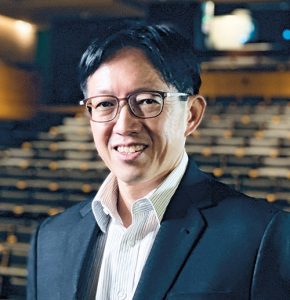
[Singaporean youths] will expect to graduate as well-rounded, informed humans who are able to take part in social-political life and assess big questions such as social justice, governance, and ideology. Interdisciplinarity can be a means for universities to achieve this.
Dr Adrian Kuah, Founding Director, NUS’ Futures Office
A NEW GENERATION OF GRADUATES
This will not be easy, though. Some resistance is to be expected — from faculty members who are used to emphasising their own domains of expertise, and from society at large, which still prizes the specialist over the generalist. NUS President Prof Tan also suggested in his Straits Times commentary that the “kiasuism” prevalent in our society may result in a tendency to over-teach and impose excessive requirements for subject majors.
However, there is no doubt that universities have to radically rethink themselves, whether or not another pandemic strikes. “Incoming cohorts are going to approach higher education with a more critical eye,” says Dr Kuah. “Singaporean youths are no longer solely vexed by pragmatic concerns over their jobs and career aspirations, but also by broader social issues. They will expect to graduate as well-rounded, informed humans who are able to take part in social-political life and assess big questions such as social justice, governance, and ideology. Interdisciplinarity can be a means for universities to achieve this.”
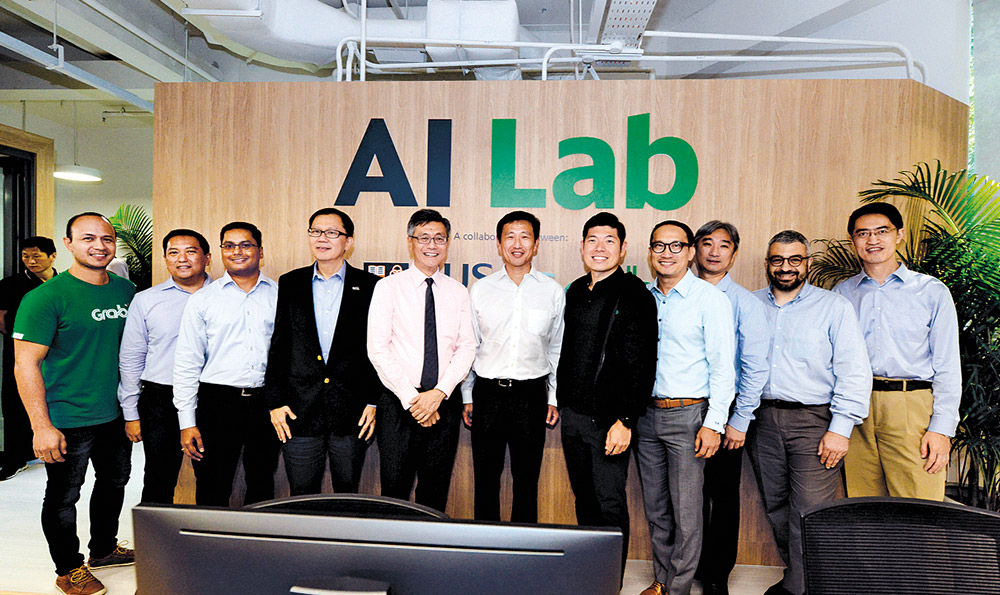
AI is also front and centre at the Grab–NUS AI Lab, launched in 2018 to address the challenge of urban congestion and liveability of cities, especially in Southeast Asia. Anchored at the NUS Institute of Data Science, the Lab will leverage data from the Grab platform to provide AI-driven insights and innovative solutions to improve urban transportation and pave the way for smarter cities across the region.
This article first appeared in the January to March 2021 issue of The AlumNUS magazine. It is reproduced with permission from the NUS Office of Alumni Relations.


